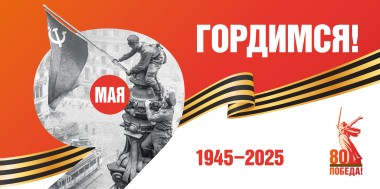The anti-Russian forces in the West at the cost of incredible efforts are holding discontent of the peoples of their countries. The anger of voters is caused by deterioration of relations with Russia, irresponsible policy in the Middle East and the Maghreb, which flooded Europe with hundreds of thousands of frightened and aggressive migrants.
Elections in the United States, France, Bulgaria and Moldova have shown that people, who are still free to choose their leaders, reject Russophobia. They want to see in leading positions those politicians who promise to rollback from a dangerous policy that led the world to the brink of a large-scale war.
The bankrupted world political forces (only yesterday the all-powerful ones) have relied not only on the anti-Russian hysteria inflation, but also on discrediting the politicians who oppose them in the countries of the Western world. Their rhetoric, becoming more stupid and sounding more plaintive, is the evidence how they are scared, disoriented, catching at the last straw.
At the time, they were able to seize a number of states with the help of traitors to pretend patriots and nationalists. However, over the past period, the people have realized that the colorful slogans were a hoax, and politicians who came to power on a wave of the "colored" and off-colored revolutions do not think about the welfare of the people, but perform the functions of colonial administrations, providing to pumping out to the West the national wealth of the voluntary colonies led by them.
Georgia is not an exception.
In Georgia live the hard-working people who reached excellent financial results in the years of Soviet power. There were hundreds of industrial enterprises in the country, which made much of profit. The almost universal employment along with agricultural development allowed providing one of the highest rates of living standards. However, in the late 1980s - early 1990s appeared public organizations, which advocated the break with the Soviet Union and rapprochement with the West, primarily with the United States, membership in NATO. In 1991 Georgia proclaimed "the blockade of the Soviet Union", which led in fact to self-blockade of Georgia, rapture of economic ties with industrial partners and subcontractors. At the same time bloody wars were unleashed against South Ossetia and Abkhazia. The positions of the moderately corrupted Soviet officials were occupied by people deprived of the slightest moral principles who rushed to privatize and appropriate everything they could. This led to a severe economic collapse.
In the early 2000s in response to Saakashvili's promise to transform Georgia into a powerful anti-Russian bridgehead, the West rendered an unprecedented economic, technological and intellectual assistance to Georgia, which made it possible to some extent, to smooth the impact of mediocre, and even harmful economic policy of the authorities. Subsequently, however, the West appreciated the low worth of Georgia in its anti-Russian aspirations that had an impact on the amount of funding.
As the "Georgian economic miracle" was not based on the achievements of the Georgian economy, but on the direct cash flows, it is not surprising that the economic situation in Georgia became more complex. On the New Year's Eve the rate of the national currency plummeted against the US dollar. For a few months GEL depreciated by almost 50 percent. The devaluation hurt the low-income groups, which are 2/3 of the number of inhabitants of the country. In the difficult situation were those who took loans in foreign currency.
The Government led by Kvirikashvili developed a program of budget subsidies, but what results it could bring under condition of GEL depreciation and general rise in price. It should be stressed the energy prices (electricity and fuel): firstly, they are imported from other countries and their price depends on the exchange rate; secondly, the increase in prices leads to higher prices for goods of local production.
After intensive efforts for two decades, aimed at the collapse of its economy (as the bankruptcy, conversion and even the closing of each enterprise oriented to Russia was presented as breaking another "slave circuit"), Georgia is increasingly losing the signs of the producing country, becoming a consumer, the food basket of which is formed mainly by imported products.
Georgian "virtual prosperity bubble" is gradually deflating. The economy is not able to cope with problems that arise due to the lack of the real sector. The government is trying to take urgent measures, mending holes in the budget, not realizing that the problem is systemic, and it is impossible to solve it in a short time: because it requires systemic reforms, overcoming the conditions that were being formed for a quarter of a century!
As we know from the course of high school, the economic base has a direct impact on the political superstructure.
In political terms, the main event last year was the parliamentary elections, showing the division of society into two parts. "Georgian Dream" achieved more than a convincing victory over the main opposition party "United National Movement". Six mandated went to the party "Alliance of Patriots of Georgia". Many believe this party "pro-Russian". At the same time, the pro-Western "Republicans" and "Free Democrats" suffered a catastrophic defeat.
The extremely low turnout reflects not only the disappointment of the major part of the population in the political course of the country, but also a lack of faith in changing the heavy political realities by a simple voting. In principle, one can understand them.
However, the Georgian Foreign Minister Janelidze considers it very successful. But he has no choice - he is forced to adhere to the official position of his leadership. A main information component in the Georgian foreign policy is in advertising of the supposedly successful promotion of the issue on introduction of visa-free regime between Georgia and the European Union member states. Can this be considered a successful example of foreign policy is a moot point. Because in fact, the Georgian authorities commit in this matter quite a crude substitution of concepts. In fact, since 1988, starting the promotion of Georgia's withdrawal from the Soviet Union, the people of Georgia were promised the abolition of the visa regime as an obstacle to labor activity of citizens of Georgia in the rich countries of the West and, accordingly, the possibility of getting high salaries. And now we are talking only about the abolition of visas, but not about the permission to work in Europe.
That is, citizens of Georgia will be able to travel to Europe without a visa, saving on this four-day and 20 Euros. They will be able to spend their money in Europe. However, they will not be able to work and earn money.
Was it worth to destroy the economy, science, education system, inherited from the Soviet Union, to spoil relations with South Ossetia, Abkhazia and Russia?
The topic of NATO membership is also increasingly shrouded in mist, especially after the coming to power of the new U.S. President Donald trump. In Georgia, there is a strange situation, when everyone understands that it is impossible to join the alliance in the foreseeable future, but no one dares to talk aloud about it.
Georgia is risking remaining alone with all its problems. The pompously advertised Western assistance is reduced to organization of concerts and visits of not quite adequate politicians like Senator McCain. The latter, probably competing with Nuland, who handed out cookies in Kiev, during the New Yes`s holiday handed out rolls to residents of the Georgian villages bordering on South Ossetian territory.
For the Georgian leadership it is increasingly difficult to cope with the economic and political situation in the country. Especially difficult is to explain to the people the failure of pursuing a policy of the "West" to the detriment of relations with its historic neighbors. This is not the failure of the Georgian leadership: in fact it is not an independent subject of politics, but only the object of the impact of external forces – primarily the Western. It says about the failure of the policy of tough confrontation, pursued by the West led by the United States from Carter to Obama.
Georgia will be able to avoid unwanted consequences, if its leadership adopts a more independent, pragmatic position that meets the interests of the Georgian people.
2017 will show whether the healthy forces in the Georgian society can convey to the authorities the acknowledgement of the disastrous confrontation with the historic allies in the light of changes in the world political arena. At the same time we will see whether the Georgian political class is in solidarity with the people of the US and European countries, who have said to the confrontation the resounding "No!






